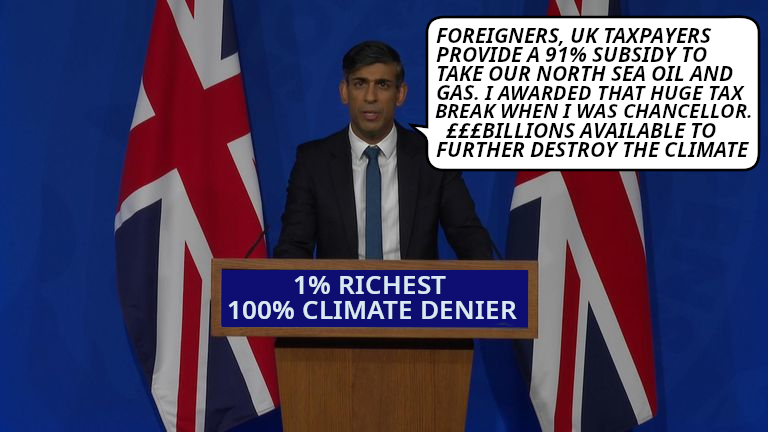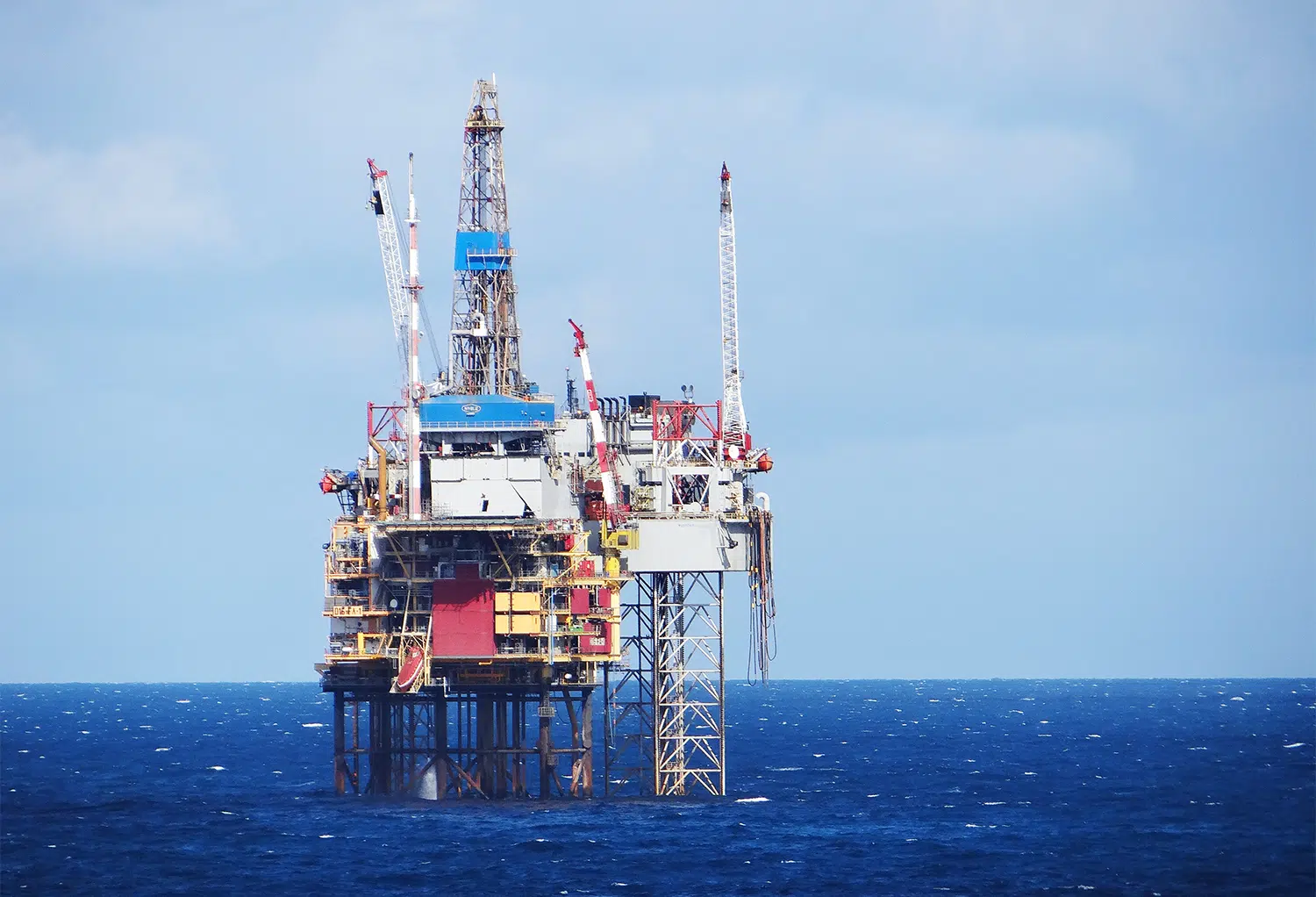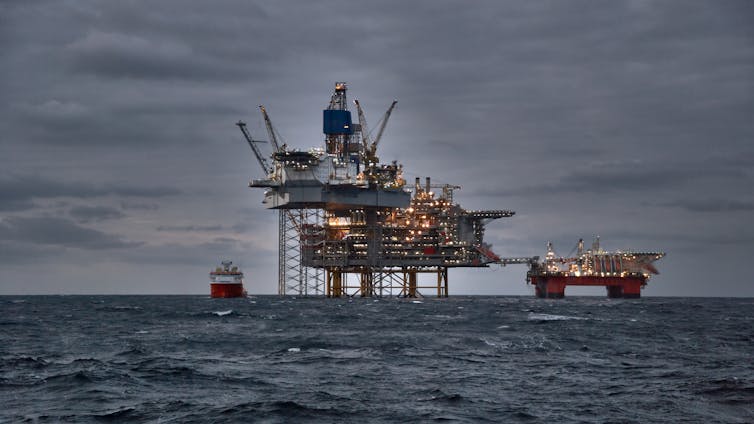Tory Lord’s Firm Awarded New North Sea Oil and Gas Licences
Original article by Sam Bright republished from DeSmog.

Michael Spencer, who has donated millions to the Conservative Party, is the largest shareholder in North Sea exploration firm Deltic Energy.
A company whose largest shareholder is a former Conservative treasurer and major party donor has been awarded two new North Sea exploration licences, DeSmog can reveal.
It was announced on Wednesday (31 January) that Deltic Energy had been awarded the new licences in the latest North Sea oil and gas licensing round.
Conservative peer Michael Spencer currently holds an 18.8 percent (£4.5 million) stake in the firm.
Spencer has donated over £6 million to the Conservative Party since 2005 and was appointed to the Lords by Boris Johnon in September 2020. The billionaire financier is a former party treasurer and raised an estimated £70 million for the Tories between 2006 and 2010. He currently serves as a director of the Conservative Party Foundation – the party’s multi-million pound endowment fund, created under his watch in 2009 to manage “legacy funds to support the long-term finance” of the party.
The Guardian and the Good Law Project also revealed today that EnQuest Heather, a subsidiary of EnQuest,` had been awarded a new oil and gas licence. EnQuest Chief Executive Officer Amjad Bseisu has donated nearly £500,000 to the Conservative Party in the last decade and has lobbied to maximise oil and gas exploration in the North Sea.
DeSmog revealed in May 2023 that EnQuest had been awarded licences to explore carbon dioxide storage under the North Sea.
Jolyon Maugham, executive director of the Good Law Project told DeSmog that: “The Electoral Commission records these contributions as donations to the Conservative Party. But, given the extraordinary correlation between donations to the Tories and valuable awards from the government, I wonder whether it would be more accurate to brand them as investments?”
Both personally and through his family office IPGL, Spencer has donated more than £100,000 to the Conservative Party and its candidates since Rishi Sunak became prime minister in October 2022.
Sunak has been advocating forcefully for North Sea oil and gas exploration in recent months, saying that the UK plans to “max out” the UK’s reserves. In addition to its two new licences, Deltic currently has interests in five licences covering nine North Sea areas, known as blocks. New licences were also awarded this week to fossil fuel giants Shell and Equinor.
“Rishi Sunak’s obsession with doling out new North Sea licences now starts to make some sense,” Tessa Khan, executive director of Uplift, told DeSmog. “It’s clear there is no public benefit from the policy… But new fields could make a tidy little profit for a handful of oil and gas executives and their shareholders, including Conservative Party donors.”
Through the Offshore Petroleum Licensing Bill, passed by MPs last week, the government is attempting to bind future administrations to annual North Sea oil and gas licensing rounds.
This is despite the International Energy Agency stating that new fossil fuel exploration is “incompatible” with the Paris Agreement target of limiting global heating to 1.5C.
This week, the Climate Change Committee – the independent body that advises the government on its net zero policies – warned that mixed messages, including new fossil fuel projects, have damaged the UK’s international climate standing.
Spencer told DeSmog that: “I believe it is totally in the best interest of the UK to replace imported oil and gas by energy extracted from our own North Sea.”
North Sea gas carries higher emissions than imports from Norway, while there is no guarantee that oil and gas extracted under the new licences will be used to supply the UK, given that it is mined by private companies that sell it on the open international market.
Khan added that: “new drilling won’t make any difference to our bills, which ministers have admitted; it won’t boost energy security in that the UK has burned most of its gas; and it won’t provide a secure future for the workforce, which has halved in the past decade despite hundreds of licences being issued.
“The prime minister now needs to come clean with the public on any discussions he’s had with Spencer, or any of his party’s other oil and gas donors,” Khan said. “Sunak cannot continue to privilege the short term interests of a few, rich oil execs over the needs of millions of ordinary people who are struggling to afford to heat their homes.”
North Sea licences are awarded by the North Sea Transition Authority, a non-departmental public body owned and funded by the Department for Energy Security and Net Zero. There is no evidence that Deltic or Spencer used political contacts to secure the licences.
According to the NSTA, licensees have to “meet certain financial criteria” and meet the adequate “technical capability”, but there is no published guidance on avoiding conflicts of interest.
The NTSA, Deltic and EnQuest declined to comment on the record. The Department of Energy Security and Net Zero has been approached for comment.
Spencer and Deltic
Spencer has a number of oil and gas interests. His House of Lords register of interests shows that he has a stake in Pantheon Resources, a UK company exploring for oil in Alaska, and Cluff Energy Africa, described as an “early stage oil prospecting company seeking licences in Africa (Angola and Sierra Leone)”.
Until December last year, Spencer also held shares in Petrofac, an oilfield services firm heavily involved in the North Sea, including the controversial Cambo project.
Spencer has publicly advocated for the fossil fuel industry. He told LBC’s Nick Ferrari last September that the UK “sadly has opposed further investment in North Sea oil and gas”. Spencer used the interview to praise then Prime Minister Liz Truss for opposing windfall taxes on the sector, calling them “not Tory policy” and “not pro-business”. He has also expressed support for the controversial policy of fracking for shale gas.
Spencer is the chair of the Centre for Policy Studies, an influential Conservative think tank whose director was the co-author of the 2019 Tory manifesto. A number of fellow board members have financial interests in oil and gas firms.
The Conservatives received £3.5 million from polluters, fossil fuel interests, and climate deniers in 2022, and took over £400,000 from individuals and companies in the fossil fuel industry in 2020 and 2021 as the government weighed up decisions on North Sea oil and gas licences.
Original article by Sam Bright republished from DeSmog. ENDS



